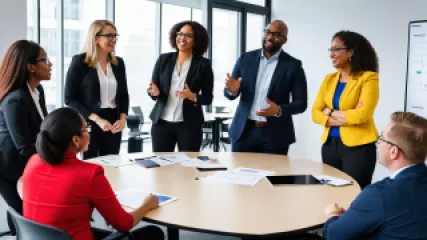How to Conduct Effective Bias Workshops
Introduction:
Bias is an inherent part of human nature, influencing our thoughts, decisions, and actions. It can have a profound impact on individuals and organizations, leading to unfair treatment and exclusion. Confronting bias is crucial for fostering inclusivity, equality, and a positive work environment. One powerful tool in this endeavor is conducting effective bias workshops. These workshops provide a safe space for individuals to explore their biases, challenge their assumptions, and develop strategies for managing bias in professional settings.
Step 1: Define the Purpose and Objectives
Before conducting a bias workshop, it is essential to define the purpose and objectives. What do you hope to achieve through this workshop? Is it to raise awareness about different types of biases? Or is it to provide participants with practical strategies for managing bias in the workplace? Clearly defining the purpose and objectives will guide the design and structure of the workshop.
Step 2: Select the Right Facilitator
The success of a bias workshop heavily relies on the facilitator's expertise and approach. Look for someone who has experience in facilitating discussions on bias and diversity. The facilitator should create a safe and inclusive environment, encourage open dialogue, and be skilled at managing challenging conversations. Consider hiring an external facilitator if you lack internal resources with the necessary expertise.
Step 3: Develop Engaging Content
The content of the bias workshop should be informative, engaging, and thought-provoking. It should include relevant research, case studies, and real-life examples to illustrate the impact of bias. Incorporate interactive activities, such as group discussions, role-playing exercises, and reflective journaling, to encourage active participation and self-reflection.
Step 4: Establish Ground Rules
Setting clear ground rules at the beginning of the workshop helps create a respectful and inclusive environment. Ground rules may include active listening, speaking from personal experiences, respecting differing opinions, and maintaining confidentiality. Emphasize the importance of creating a safe space where participants can share their thoughts and experiences without fear of judgment.
Step 5: Provide Pre-workshop Preparation
To maximize the effectiveness of the bias workshop, provide participants with pre-workshop preparation. This can include recommended readings, videos, or online modules that introduce key concepts and terminology related to bias. Pre-workshop preparation allows participants to come prepared, fosters engagement, and creates a shared foundation of knowledge.
Step 6: Design Interactive Exercises
Interactive exercises are a powerful tool for challenging participants' biases and promoting self-awareness. Some effective exercises include role-playing scenarios, small group discussions, and self-assessment quizzes. These activities encourage participants to reflect on their own biases, engage in empathetic conversations, and explore different perspectives.
Step 7: Facilitate Open Dialogue
The facilitator plays a critical role in creating a safe and open space for dialogue. Encourage participants to share their thoughts, experiences, and concerns related to bias. Actively listen to their perspectives, ask probing questions, and facilitate respectful discussions. Ensure that all participants have an opportunity to contribute and that diverse viewpoints are valued.
Step 8: Provide Resources for Continued Learning
A bias workshop is just the beginning of the journey towards confronting bias. Provide participants with resources for continued learning, such as recommended books, articles, podcasts, and online courses. Encourage them to further explore topics related to bias and diversity independently. This ongoing education will help reinforce the lessons learned in the workshop.
Step 9: Evaluate and Seek Feedback
After the bias workshop, evaluate its effectiveness and seek feedback from participants. Use surveys or feedback forms to gather their insights on the workshop's content, facilitation, and impact on their understanding of bias. This feedback will guide future improvements and ensure that the workshops continue to meet the needs of the participants.
Conclusion:
Conducting effective bias workshops is a valuable step towards creating inclusive and equitable work environments. By providing individuals with the opportunity to confront their biases, challenge assumptions, and develop strategies for managing bias, these workshops contribute to a culture of respect, empathy, and fairness. Remember, confronting bias is an ongoing journey, and bias workshops serve as catalysts for change.






